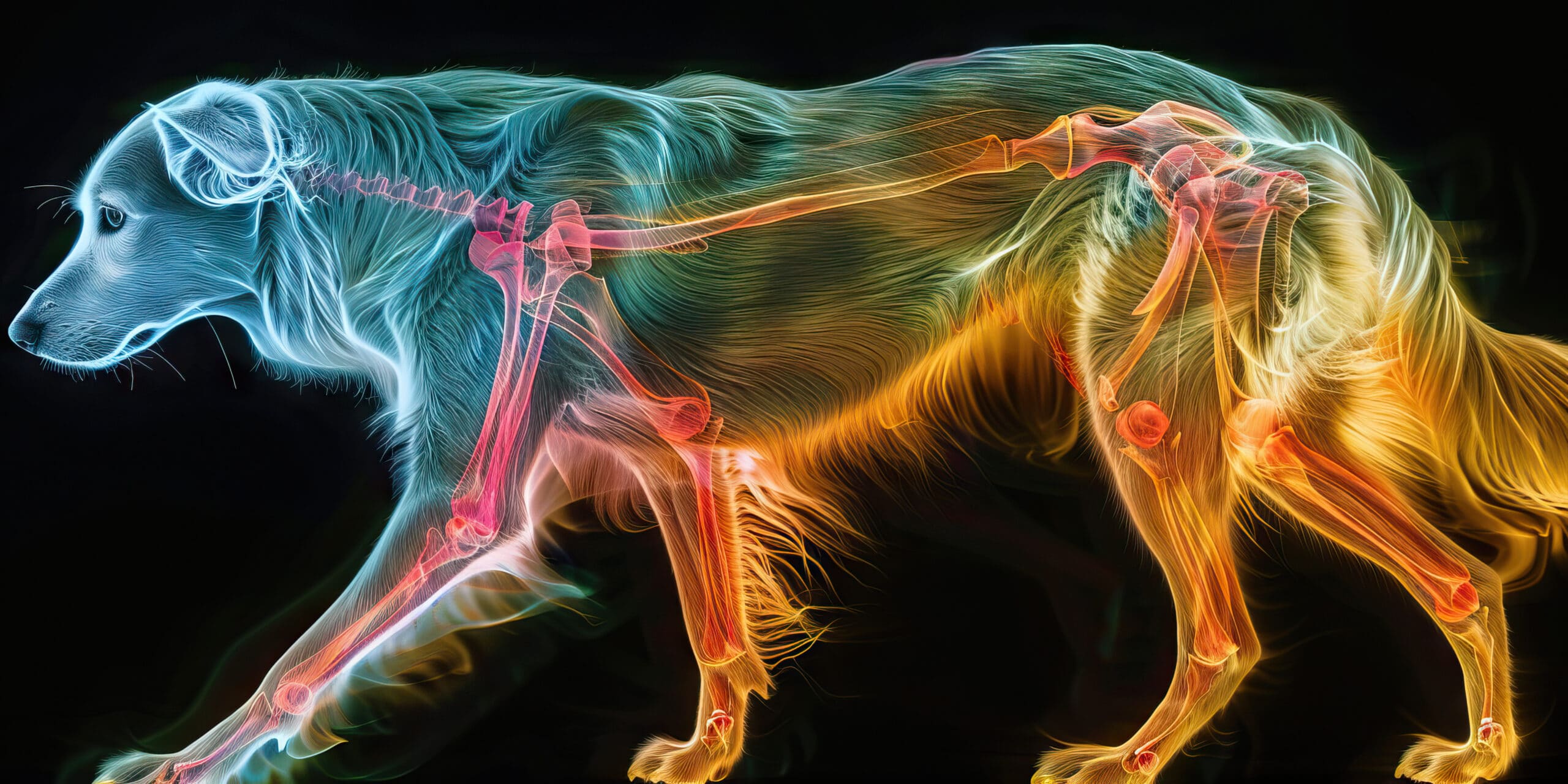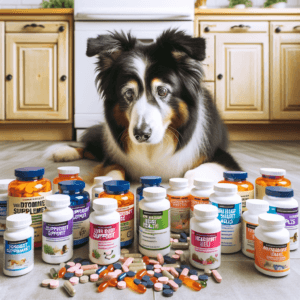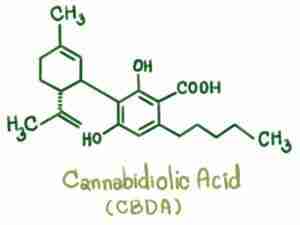The Ultimate Guide to Arthritis Supplements for Dogs. What Works Best

Do arthritis supplements for dogs work? Imagine your dog as a well-oiled machine. It is a marvel of engineering, with gears and cogs working in perfect harmony. But what happens when those gears start to grind? When the cogs don’t turn as smoothly as they used to?
That’s arthritis, my friend. A pesky intruder that sneaks into your dog’s joints, causing pain and reducing mobility.
But fear not! Just as a mechanic has a toolbox complete of gadgets to fix a sputtering engine, we have a treasure trove of supplements to alleviate dog arthritis.
We’ll explore the best supplements for canine arthritis, from the dynamic duo of glucosamine and chondroitin to the natural powerhouses of green-lipped mussel and medicinal mushrooms.
We’ll explore the world of joint medications for dogs, surf the waves of hip and joint supplements, and even try CBD for joint health.
So, buckle up and get ready for a journey into the world of dog arthritis supplements. It’s going to be a tail-wagging adventure!
Understanding Dog Arthritis and Joint Health
Dog arthritis is like a stubborn storm cloud that lingers, casting a shadow over your pet’s sunny disposition. It affects joints, leading to discomfort and stiffness.
Arthritis in dogs can result from age, injuries, or genetic predispositions. It’s as common as your morning coffee spill—irritating but manageable.
Recognizing early signs of joint issues can be the difference between a quick drizzle and a full-blown thunderstorm. Symptoms to watch include:
- Limping or favoring particular legs
- Reduced activity or reluctance to climb stairs
- Behavioral changes due to discomfort
Dog arthritis doesn’t discriminate. It can sneak into the lives of any breed, any age, although larger breeds are more vulnerable. Hip dysplasia, in particular, tends to target the hefty canine crowd.
It’s not just about joints; it’s about overall health. Maintaining optimal joint health requires a balanced diet, regular exercise, and weight management.
By integrating supplements and environmental adjustments, your pup can chase postmen and fetch sticks for years to come. Prioritize their joint health today, because a happy dog makes for a happier home.
The Role of Supplements in Managing Arthritis.
What makes the best joint supplements for dogs? Good arthritis supplements for dogs are like traffic cops directing the flow of nutrients straight to the needy joints. They alleviate symptoms, providing relief and greater mobility for those cramped-up paws.
Unlike medications, which may mask pain, supplements work under the hood. They rebuild and strengthen the joints themselves, enhancing the quality of life.
The use of glucosamine and chondroitin is widespread. They act as a joint’s best friend, helping to repair cartilage and lubricate the joint.
Fish oil provides a rich dose of Omega-3 fatty acids, a natural anti-inflammatory that soothes achy joints. Meanwhile, green-lipped muscle and CBD oil are stars for joint pain, offering relief without harsh side effects.
But remember, while supplements play a vital role, they are part of a broader management plan. Always consult your vet before starting any new regimen for best results.
Key Ingredients in Dog Arthritis Supplements
When it comes to easing the pain of arthritic joints, some ingredients shine brighter than a pup’s wagging tail. These mighty molecules work at the microscopic level to mend and rejuvenate.
Let’s delve into the building blocks of dog arthritis supplements. Think of them as the superheroes of joint health, each with unique superpowers.
Here’s a list of the top-notch ingredients you’ll want to look for in joint care for dogs:
 Glucosamine
Glucosamine- Chondroitin
- Green-Lipped Mussel
- Eggshell Membranes
- Boswellia
- Devil’s Claw Root
- Omega-3 Fatty Acids
- MSM (Methylsulfonylmethane)
- Medicinal Mushrooms
Glucosamine and Chondroitin: The Dynamic Duo
When it comes to dog arthritis supplements, glucosamine and chondroitin are like Batman and Robin. They’re the superheroes of joint health, swooping in to repair cartilage and maintain flexibility.
Glucosamine works as the architect, building new cartilage to replace the old, worn-down stuff. It’s a joint’s best friend, reducing the friction that causes pain.
Meanwhile, chondroitin acts like a sponge. It helps the joint absorb water to stay cushioned and supple, reducing stiffness and discomfort. Together, they make a formidable team against arthritis.
Omega-3 Fatty Acids: Nature’s Anti-Inflammatory
Omega-3 fatty acids are the peacekeepers of the joint world. Their origins in marine animals bring the ocean’s calming touch to the inflamed joints.
EPA and DHA, the VIPs of the Omega-3 family, have potent anti-inflammatory properties. They’re like the soothing balm for fiery joints, reducing pain and improving mobility.
Regular doses of Omega-3s can transform a creaky pooch into an enthusiastic companion. It’s like a spa treatment but for their sore joints.
Natural Powerhouses: Green-Lipped Mussel, Eggshell Membranes, Mushrooms, Boswellia, and Devil’s Claw Root
Green-lipped mussel isn’t just a seafood delicacy—it’s a powerhouse for joint care. Packed with Omega-3s, glucosamine, and unique compounds, it battles inflammation with gusto.
Alongside it, eggshell membranes have gained recognition for their joint health benefits. Rich in collagen and glycosaminoglycans, they provide essential building blocks for cartilage repair, making them an excellent complement to other joint supplements.
Lions Mane mushroom is known for its potential cognitive benefits, promoting brain health and possibly slowing down cognitive decline in senior dogs. Its properties may help enhance memory and focus, making it a valuable addition to supplements for aging canine companions.
Chaga mushroom is celebrated for its immune-boosting properties, rich in antioxidants that combat oxidative stress. This can be particularly beneficial for senior dogs, helping to maintain overall health and potentially extending their lifespan.
.Boswellia, derived from the resin of the Boswellia tree, has anti-inflammatory properties that can alleviate pain and improve joint function. At the same time, devil’s claw root has been traditionally used to ease pain and inflammation.
These natural warriors combine flavor and function, offering a holistic path to soothing cranky joints. They remind us that sometimes nature really does know best. Combining these ingredients in your dog’s supplement regimen can help create a more practical approach to managing arthritis and enhancing overall joint health.
CBD Oil: A Natural Option for Joint Health
CBD oil has emerged as a popular alternative for managing arthritis symptoms in dogs. Extracted from the hemp plant, CBD interacts with the endocannabinoid system, which plays a crucial role in regulating pain and inflammation. Many pet owners have reported significant improvements in their dogs’ mobility and comfort levels after incorporating CBD into their joint care regimen. It’s essential to choose high-quality, pet-specific CBD products, as they are formulated with the proper concentrations and free from THC, ensuring safety for your furry friend. Always consult your veterinarian before introducing CBD oil to your dog’s supplement plan, as they can guide dosages and potential interactions with other medications.
Choosing the Right Supplement for Your Dog
Selecting the right dog arthritis supplement can feel like finding a needle in a haystack. The choices seem endless, and every package promises miraculous results. But fear not, dear pet parent, for we’re here to simplify this journey.
First, consider your dog’s specific needs. Is it a Labrador with hip dysplasia or a sprightly Dachshund with mild arthritis? The answer will guide your decision.
Here’s a shopping list to keep in mind:
- Age and weight of your dog
- Level of arthritis or joint condition
- Form of supplement preferred (chews, pills, powders)
- Dietary restrictions or preferences
- Vet recommendations
Read ingredient labels carefully, ensuring the presence of key players like glucosamine and chondroitin. Avoid fillers that add no real benefit.
Price does matter, but quality trumps cost. Remember, sometimes spending a bit more means better, more effective ingredients.
Looking for seals of quality such as USDA Organic certification can indicate additional testing to ensure your dog is safe.
Ultimately, your vet is an invaluable guide. They can help tailor choices to fit your pup’s life stage and unique needs.
Quality and Safety: What to Look for in the Best Hip and Joint Supplements for Dogs
When it comes to dog arthritis supplements, quality isn’t just a buzzword. It’s the backbone of effective treatment. Poor-quality supplements not only waste money but can also harm your furry friend.
Start by scrutinizing the ingredient list. Look for human-grade ingredients, as they reflect higher standards. Avoid any suspicious additives that serve little more than decorative purposes.
Check for third-party testing or certifications. The NASC seal, for example, is a reassuring nod to quality assurance and safety.
Inquire about the origin of ingredients. Products sourced locally often undergo rigorous checks compared to overseas counterparts with lax regulations.
Keeping all this in mind ensures that what you offer your dog isn’t just a supplement but a step towards a healthier, happier life.
Holistic Approaches: Beyond the Pill Bottle and Natural Joint Supplements for Dogs
Supplements are a piece of the arthritis puzzle but not the whole picture. Embracing holistic approaches can provide a more comprehensive path to joint health.
Diet plays a crucial role. A balanced, nutrient-rich meal can complement the effects of supplements. Some foods naturally support joint health, like aligning stars for a constellation.
Exercise, though tricky for arthritic dogs, remains necessary. Tailor activity levels to avoid straining joints—think gentle walks rather than marathons.
Acupuncture and massage therapy have become promising allies, providing relief without needing pills. They offer relaxation and improved blood flow, like a calming stream through a rocky landscape.
Ultimately, integrating these methods ensures a multi-faceted approach. It’s about combating pain and enriching your dog’s overall quality of life.
Administering Supplements and Monitoring Your Dog’s Progress
How to give arthritis supplements in dogs doesn’t have to be a Herculean task. With a few tips and tricks, it can become a seamless routine.
First, make it part of their daily schedule. Consistency is key to seeing results. Choose a time that aligns with meals or other established routines.
Be patient with the process. Understanding your dog’s response may take time. Sometimes, it’s like waiting for a flower to bloom.
Here’s a checklist to guide you in keeping track of joint health for dogs:
- Follow the vet’s dosage recommendations.
- Observe any changes in behavior or mobility.
- Note any adverse reactions.
- Keep a progress log for reference.
Frequent communication with your vet remains essential. They can adjust the dosage or suggest an alternative if something seems off. Remember, teamwork makes the dream work!
Starting a Joint Supplement for Dogs Regimen: Dosage and Introduction
Introducing arthritis supplements for dogs can be as exciting as a new toy. Start with the recommended dosage, but consider beginning with a small dose.
Gradually increase it, watching for any side effects. Think of it as slowly turning the volume up on a new song.
Choose a form that suits your dog. Some prefer powders on their food or tinctures, while others like chewables. Tailor it to their taste buds.
Tracking Improvements and Adjusting as Needed
Monitoring your pup’s progress is like tending to a garden. You water, you wait, and then you bloom! Look for improvements in mobility or mood.
Note any setbacks or issues. These logs can aid your vet in adjusting the plan if needed.
Remember, not all dogs respond the same way. Patience and observation will help you create the best regimen for your furry friend, guiding them to a vibrant, pain-free life!
FAQs: Addressing Common Concerns About Dog Arthritis Supplements
Pet owners often have questions about dog arthritis supplements. Let’s explore some of the most common concerns.
Do arthritis supplements for dogs work? Success can vary from pooch to pooch. While some find the relief they seek, others may need additional treatments. It’s all about finding the right fit for your dog.
Are supplements safe for all dogs? Generally, yes. However, always consult your vet. They know your dog’s history and can guide on safe use.
Here’s a handy list of common concerns:
- Possible side effects?
- Long-term impact?
- Interactions with meds?
How long until the results are visible? Like a fine wine, progress can take time. Some notice changes in a few weeks, while for others, it may take months.
Can supplements replace veterinary care? In one word: no. Supplements complement, not replace, professional treatment. They work best as part of a holistic approach. A partnership with your vet is key for lasting happiness and wagging tails!
Wrapping Up: A Tail-Wagging Conclusion
In the quest for canine comfort, arthritis supplements for dogs can be a game changer. While they aren’t a magic cure, these supplements often relieve joint pain and improve overall well-being.
The key to success lies in choosing the right mix of ingredients and consulting with your vet. Quality ingredients and expert advice can lead to a happier, more mobile pooch.
Remember, your furry friend’s tail wags in appreciation of your efforts. With consistent care, supplements, and love, your pet will continue to run, play, and brighten your life joyfully.
To learn more about dog supplements, please read our blog post “Essential Supplements for Senior Dogs.”



















